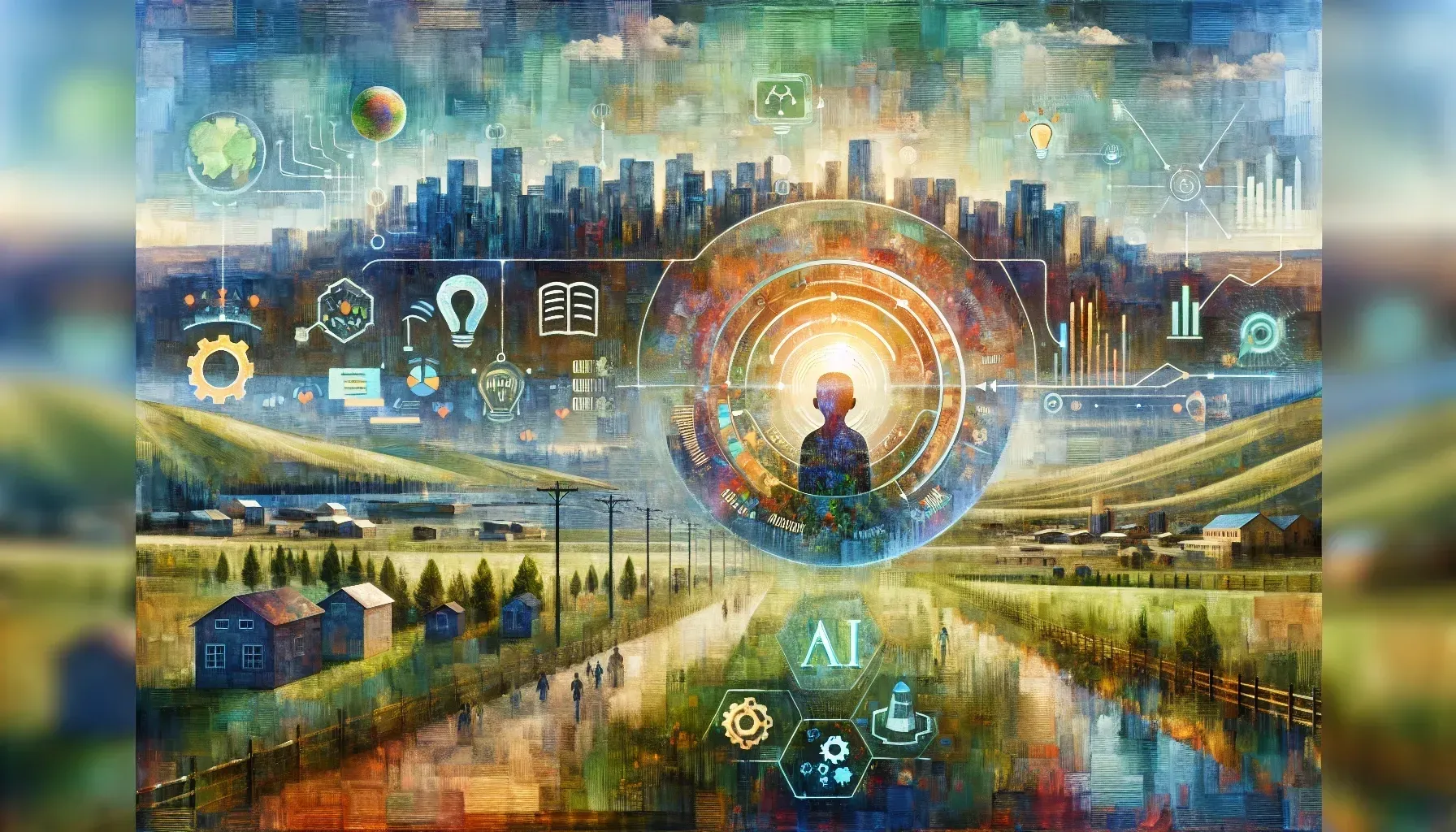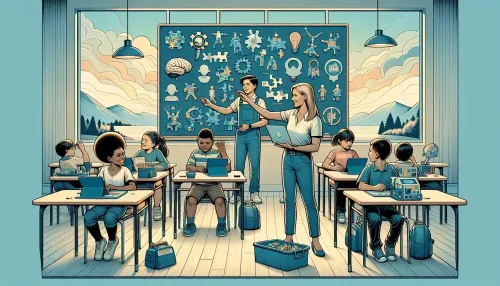Personalized Learning Pathways: Revolutionizing Education for Autistic Children with AI

AI technology has been making waves in various industries, and one of the most impactful areas of its application has been in education, particularly for children with autism. The convergence of artificial intelligence and education presents a groundbreaking opportunity to revolutionize the learning experience for autistic children. In this article, we'll delve into the promising future of AI-driven personalized learning pathways and their transformative impact within the realm of autism education.
AI in Autism Education: Transforming Learning Experiences
Artificial intelligence is poised to reshape the landscape of curriculum development for autistic children by enabling personalized learning journeys. Through sophisticated algorithms and data analysis, AI can identify each child's unique learning needs, cognitive strengths, and areas requiring additional support. This granular understanding allows for the creation of tailored educational programs that cater specifically to the individual requirements of autistic students, fostering a more inclusive and effective learning environment.
How AI customizes curriculum for autistic children
Machine learning algorithms are revolutionizing how educational content is curated and delivered to autistic learners. By analyzing patterns of engagement, comprehension, and interaction, AI can adapt learning materials in real-time to align with the distinctive learning styles of each child. This personalized approach not only enhances the retention of information but also cultivates a sense of empowerment and confidence in students as they engage with educational content tailored to their cognitive preferences.
Machine Learning: Adapting to Individual Learning Styles
One of the key advantages of integrating AI into autism education lies in its ability to monitor student progress dynamically. Through continuous assessment and analysis, AI-powered platforms can identify patterns of progress, areas of challenge, and instances where instructional strategies may need refinement. This iterative process ensures that educators can adapt their teaching methods to better align with the evolving needs and progress of autistic students, fostering a more responsive and impactful educational experience.
Effective communication lies at the heart of successful education, especially for autistic children who may have unique challenges in expressing their thoughts and feelings. AI presents an opportunity to bridge communication barriers by providing innovative tools that facilitate interaction between teachers and students. From language processing algorithms to visual aids designed for emotional expression, AI interventions can amplify the channels of communication, enabling more meaningful interactions within the educational setting.
Real-time adaptation of educational content
Engagement is pivotal to effective learning, and AI-driven interactive platforms offer a new dimension of engagement for autistic learners. By leveraging interactive interfaces, immersive simulations, and adaptive content delivery mechanisms, AI platforms can captivate the attention of autistic students while accommodating their sensory sensitivities and preferences. This heightened engagement fosters a positive relationship with learning materials, enhancing retention and comprehension in ways that traditional educational approaches may not achieve.
The Role of AI in Monitoring Student Progress
Beyond conventional classroom settings, AI empowers continuous learning experiences for autistic children. Virtual tutoring systems powered by AI algorithms can provide personalized support outside school hours, offering targeted reinforcement of educational concepts and encouraging independent exploration. This extension of learning opportunities ensures that education becomes a seamless part of daily life, promoting ongoing skill development and knowledge acquisition tailored to individual learning trajectories.
Dynamic assessment and instructional adjustments
The integration of AI tools within autism education extends its impact beyond classroom dynamics by involving parents as crucial stakeholders in their child's learning journey. AI-powered platforms offer parents valuable insights into their child's progress, interactive support resources, and guidance on reinforcing educational objectives at home. By fostering consistency between school-based learning and home environments, these tools create an integrated support system that enriches the overall educational experience for both children with autism and their families.
Real-world case studies underscore the tangible benefits experienced when AI is harnessed within autism education. These success stories showcase how personalized learning pathways driven by AI technologies have led to remarkable advancements in academic achievements, communication skills development, and holistic cognitive growth among autistic students. By highlighting specific instances where AI interventions have catalyzed transformative outcomes, these case studies serve as compelling evidence of the potential for AI-powered personalized education in shaping a brighter future for autistic children.
Enhancing Communication: AI Tools for Teachers and Students
As we look ahead to the future of autism education infused with AI capabilities, it becomes evident that personalized learning pathways will play a pivotal role in reshaping educational paradigms for autistic children. The intersection of artificial intelligence with specialized education holds immense promise in not only addressing individual learning needs but also fostering an inclusive and supportive ecosystem wherein every child can thrive academically and personally.
Frequently Asked Questions
AI personalizes learning for autistic children by analyzing their unique learning needs and cognitive strengths. This allows educators to create tailored educational programs that cater specifically to each child's requirements, fostering a more inclusive and effective learning environment.
AI plays a crucial role in tracking student progress by continuously assessing and analyzing data. It identifies patterns of progress and challenges, enabling educators to adjust their teaching strategies dynamically to better meet the evolving needs of autistic students.
AI tools provide parents with valuable insights into their child's educational progress, offering interactive resources and guidance. This support helps parents reinforce learning objectives at home, creating a consistent and integrated learning environment for their children.
Check Out These Related Articles

Autism and Education: Enhancing Learning for Autistic Children

Revolutionizing Autism Education: The Dawn of Personalized Learning Environments

The Science of Sensory-Friendly Classrooms for Autistic Children
